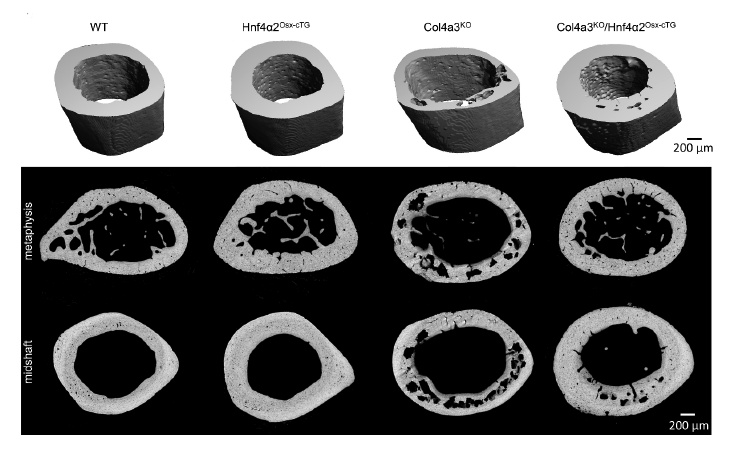Category: Disease Discoveries
-

Using Physiology to Predict Treatment Response in Eosinophilic Esophagitis
Northwestern Medicine scientists have identified and characterized common symptoms and patterns in Eosinophilic esophagitis, according to a study published in the journal Gastroenterology, findings that will help predict how patients will respond to treatment.
-

Genetic Variants Linked to Increased Risk of Coronary Heart Disease
People genetically predisposed to have high LDL cholesterol are at an increased risk for coronary heart disease even if their cholesterol levels are only modestly elevated, according to a recent study published in Circulation.
-

‘Peanut Patch’ May Help Desensitize Allergic Toddlers
A newly developed “peanut patch” is a safe and effective way to desensitize toddlers allergic to peanuts, according to findings published in The New England Journal of Medicine.
-

Coaxing Hair Growth in Aging Hair Follicle Stem Cells
Northwestern scientists discovered how to soften hair follicle stem cells to enable them to grow hair again, according to a study published in Proceedings of the National Academy of Sciences.
-

New Therapeutic Target for Osteoarthritis Identified
Investigators have discovered that a subset of sensory neurons promote osteoarthritis-related joint pain and inflammation, suggesting a new therapeutic target for pain management, according to findings published in Nature Communications.
-

Largest Cell Map of Human Lung Reveals Insights Into Disease
Northwestern Medicine scientists helped develop the largest and most comprehensive cell map of the human lung in a recent study published in Nature Medicine.
-

Biological Aging Increases Risk of Depression, Anxiety in Adults
Advanced biological aging may increase the risk of depression or anxiety in midlife for older adults, according to a recent study published in Nature Communications.
-

Newly Discovered Mechanisms Increase Chemotherapy Resistance in Breast Cancer
Northwestern Medicine investigators have discovered novel features of circulating tumor stem cells that can promote chemotherapy evasion and metastasis in triple-negative breast cancer, according to a recent study.
-

Transcription Factor Prevents Bone Frailty in Chronic Kidney Disease
Northwestern Medicine investigators have discovered that the overexpression of a specific transcription factor prevented bone loss in mouse models with complications from chronic kidney disease, according to a recent study published in the Journal of Clinical Investigation.
-

Genetic Mutation Responsible for Rare Neurodevelopmental Disorder Identified
Using zebrafish models, investigators have discovered that MAP4K4 genetic variants cause neurodevelopmental delays and other physical abnormalities, demonstrating a potential therapeutic target for treating the disorder in humans, according to findings published in Science Advances.





